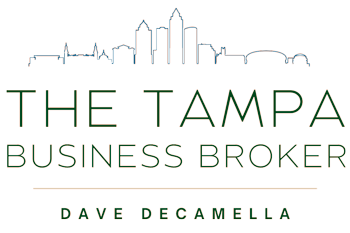
Part 1: Confidentiality In Selling Your Business
During World War II, the “loose lips” tagline became a widely known phrase, displayed on posters across the nation. Even today, the battle for business acquisitions remains plagued by a similar concern. Recent news reports have highlighted the alarming leakage of confidential information allegedly originating from certain HP Directors. This ongoing narrative serves as a stark reminder that if it can happen to HP, it can happen to anyone. The unauthorized disclosure of sensitive data presents a grave issue, particularly when it involves the sale of a company.
Confidentiality poses a challenging dilemma. On one hand, sellers strive to safeguard their information. On the other hand, they aim to maximize profits, which often involves exposing the business to potential buyers. The more buyers they engage, the greater the chance of securing the highest price—and the higher the risk of a breach.
While some sellers may have exaggerated concerns about data leaks, the reality of confidentiality cannot be ignored. Since confidentiality concern is a reality, we are have put together a 3 part series to helping you sort out this issue.
Here is a breakdown of the articles in this three-part confidentiality series:
- (this article): Timing
- Managing uncertainty
- Disclosing correctly
In this first article, we will delve into the concept of timing. The subsequent piece will delve into the art of managing uncertainty, encompassing the aspects of what to disclose and when. Lastly, our third installment will explore the intricacies of proper disclosure mechanics.
Timing
Timing is crucial because time truly is everything. It’s the “killer of all deals.” Remember that the shorter the time between going to market and making a sale, the lower the risk of leaks. The selling process should not be drawn out!
That’s why it’s essential to start with fair negotiation points from the beginning: price, terms, and deal structure. The longer negotiations drag on, the higher the chances of information getting out. Addressing any potential concerns early on allows for a quicker path to a successful closing. So, if there is a leak, the deal can be concluded before any harm is done. The alternative is to consider a smaller group of potential buyers, but that reduces the likelihood of achieving the highest price in the shortest time frame.
- It is imperative for sellers to securely store all documents related to a sale or potential sale, clearly marked as “Confidential.”
- Documents should only be transmitted to buyers through a certified business intermediary (CBI), using a secure method of communication.
- When sharing confidential information, it is crucial to employ encrypted and password-protected methods, ensuring that it remains secure and inaccessible to unauthorized individuals.
- Buyers must be educated on the gravity of breaching the non-disclosure agreement (NDA) and the serious consequences it entails.
- Sellers must remain vigilant about maintaining confidentiality. Often, it is the seller themselves who unintentionally breach confidentiality by sharing information with golfing partners, mentioning it at social gatherings, or divulging it to relatives. It is crucial to remember that “loose lips sink ships.”
When it comes to the need for a professional and certified business intermediary, this is a prime example. An effective intermediary serves as a vital link between the buyer, seller, lenders, and outside advisors. With their expertise, business intermediaries excel at safeguarding confidentiality by implementing measures such as strict non-disclosure agreements and thorough screening processes to ensure that only qualified potential buyers are disclosed.
Knowing What To Disclose and When
Understanding the various aspects of confidentiality is crucial when selling your business. Timing plays a vital role, as does knowing what and when to disclose. Business sellers have legal obligations to meet throughout the process.
To maximize the sale of your business, it’s important to disclose information strategically. Seeking guidance from an experienced business intermediary is a wise step. Buyers seek comprehensive knowledge of operations and performance to make informed decisions.
Sensitive information, such as account details, cash flow, and contracts, may be requested. It’s prudent for business sellers to limit the disclosure of information to what is absolutely necessary. Protecting existing relationships and contracts with suppliers and customers is paramount.
Revealing that the business is for sale or that you are considering an exit strategy to suppliers, employees, or customers can adversely impact the business’s operation and value. Mishandling the confidentiality process has even been known to destroy businesses.
Considering Selling Your Tampa, St. Petersburg or Clearwater Business? Reach out to Dave DeCamella, The Tampa Business Broker, for a confidential meeting to discuss your options!
